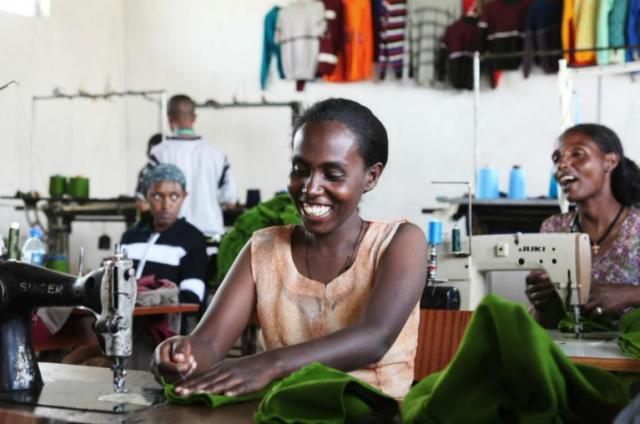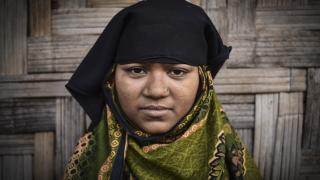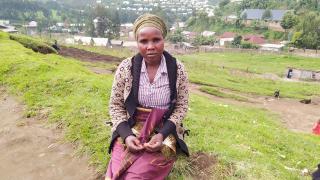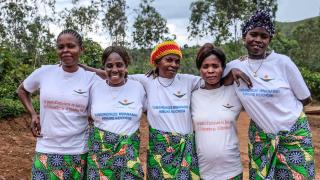Conflict Response Fund in Ethiopia
Supporting Women in Ethiopia
Through our Conflict Response Fund, we’ve reached thousands of women survivors of violence in Ethiopia
When the civil war in Ethiopia broke out in 2020, cities and villages were air-bombed and elderly men and women were conscripted into armies as soldiers carried out mass slaughter. The war reached horrific proportions as government forces took control of three rebel-dominated towns in the northern region of Tigray. The government’s blockade of the region only worsened the humanitarian crisis, forcing 2 million from their homes and cutting off access to food, telecommunications, electricity and banking. The United Nations reported that the present level of need was staggering, with over 13 million requiring basic human services in Ethiopia’s northern region.
The conflict produced a death toll of hundreds of thousands and raised the risk of sexual exploitation and violence against women (VAW) as women and girls in Tigray, Amhara and Afar tried to escape. In October of 2022, the United Nations warned that children were at a high risk of being trafficked, especially in the Tigray region, where hundreds have been separated from their families.
Back in 2021, nearly 26,000 women and girls across Ethiopia reported sexual violence, though many were hesitant to pursue justice because of social stigma.
Our partners and programmes
Our Conflict Response Fund (CRF) worked with three organisations based in Ethiopia, supporting survivors of sexual violence and war in conflict-affected regions. We are grateful to have been able to reach thousands of women with the support to rebuild their lives after surviving trauma and violence from war.
Through our CRF, Women for Women International took a non-partisan approach to partner with three organisations supporting survivors of sexual violence and war in Ethiopia, especially near and in the regions of conflict. These organisations worked with women and girl survivors of violence to provide safe housing, health services and resources for incidents of violence against women (VAW).
Association for Women’s Sanctuary and Development
AWSAD is a pioneering change agent helping survivors not only overcome VAW but also become more resilient through social and economic empowerment. Based in Addis Ababa, AWSAD is recognised for its capacity building to address violence against women in regions throughout Ethiopia.
Through our CRF, we expanded the capacity of the safe houses in Addis Ababa, Adama, Oromia, Hawassa, Dessie and Woldea to provide holistic care, support, economic opportunity and reintegration services for women and girl survivors of violence.
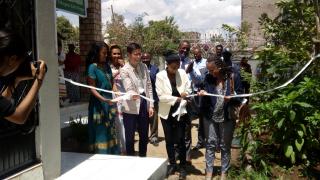
Agar Ethiopia Charitable Society
We worked with the Agar Ethopia Charitable Society to expand the capacity of a safe house in Bahir Dar, Amhara. The safe house provided women and girls with food, clothing, medical care and treatment, psychosocial support and a chance to learn how to achieve economic independence.
Our partner connected women and girl survivors of violence with local agencies to increase their access to justice.
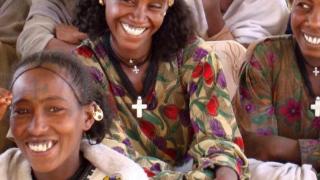
Mums for Mums
Supported by our Conflict Response Fund since October 2021, Mums for Mums provides survivors in Mekelle and Adigrat, Tigray with counseling services, one-stop centers and safe houses. Additionally, the program supports many children and other family members and drives awareness of VAW in communities.
Our partner provides physical and mental first aid and long-term psychosocial support and addresses the needs of a range of age groups. Through the program’s rights-based approach, survivors became rights-holders who decided and shaped their lives.
Mums for Mums' provides physical and mental first-aid, long-term psychosocial support and addresses the needs of a range of age groups.
Mums for Mums’ Executive Director explains how their partnership with Women for Women International helped local organisations respond to the urgent needs of women:
"Women and girls have lost their homes, income and livelihoods and no longer have adequate shelter, food or access to health services in Tigray. They have faced sexual abuse and dehumanising acts of violence throughout the conflict. Survivors who report to health facilities are hosted in temporary safe houses to reduce the risk of further abuse and reduce the stigma that victims and survivors face.
But in these facilities, survivors face overcrowding, a lack of access to basic needs, separation from family members and the breakdown of protective social mechanisms.
They remain vulnerable to exploitation and abuse and experience fear, low self-esteem, anger, shame, sadness and guilt. They may suffer anxiety-related disorders, injury, clinical depression and a fear of reintegration into society. Those who manage to report to health facilities are just the tip of the iceberg.”
The Impacts of Safe House Work
Humanitarian aid alone is not enough for the survivors of sexual violence to recover and lead meaningful and dignified lives.
Our partners provide the full cycle of support - from relief and rehabilitation to helping survivors of sexual violence see a better future and rebuild their lives.
For women, it’s supporting the healing process and finding a future by starting their own business. For elder survivors, it’s making it possible to reach their families through the Internet and lift their spirits. For children that have faced the horrors of war, it’s spending time with them every week, telling them stories or helping them with homework.
For girls like Amira, a girl of high school age who was working at a coffee shop when she was assaulted, it’s learning what happened to her was gender-based violence. After she went through the awareness programme with our partner Mums for Mums, she was able to share her story with others and begin to move on from her experience.
Thank You to Our Donors
We are incredibly proud of the work that we have accomplished through our partnership with Mums for Mums, Agar Ethiopia Charitable Society, and AWSAD, and we extend our heartfelt thanks to everyone who has supported us in our work in Ethiopia and Tigray region over the last few years. Your generosity, dedication, and commitment have made all the difference, and we are deeply grateful for your support. We look forward to continuing to work alongside you as we invest in the power of women survivors in other parts of the world as they transform their lives and inspire generations to come.
Women like Meron, who like many of the women we supported through Mums for Mums, whose life was changed after being caught in the crossfire of the war in Tigray.
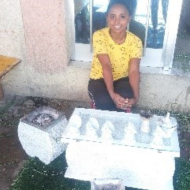
Meron, pictured outside of her coffee house.
Excluded by her by her family, Meron launched a coffee house which provided her with economic support in her isolation. Three months after the launch of her coffee house, she learned from a mentor at Mums for Mums that she was eligible for a cash grant to expand her business. Since then, she has used the cash grant to expand her coffee house’s services and has seen an increase in customers. Meron has also opened her own savings account.
I was sensing then that life as I knew it was changed. Against all odds of [my] life, I have never faltered on my dream of having [my] own source of income.
-Meron
And women like Birhane*, who faced significant challenges when she lost her husband.
Birhane began to struggle with health complications, which made it difficult to perform her job as a daily labourer and earn an income. As a result, she and her children became homeless. After she was raped by a stranger in the middle of the night, Birhane experienced severe mental distress and was referred to the Agar Ethiopia Charitable Society for support. Through the Agar Ethiopia Charitable Society, she underwent rehabilitation and received training to prepare her to earn an income. After completing the training, she received a fund to open her own shop. Thanks to this support, Birhane was able to rebuild her life and provide for her family.
Read more
Conflict Response Fund
subtitle: In 2018, we launched a new conflict response fund — a separate funding pool to more rapidly help women who are caught in the current horrors of our time. To reach women in their most critical moments, we work with partners who can respond to conflict and
In 2018, we launched a new conflict response fund — a separate funding pool to more rapidly help women who are caught in the current horrors of our time. To reach women in their most critical moments, we work with partners who can respond to conflict and make an immediate impact.
Women’s lived experiences in the Democratic Republic of Congo expose what sexual violence in conflict truly looks like, and what we must do to end it.
We are pleased to share the results of our 24-month impact evaluation of our one-year programme the DRC.

